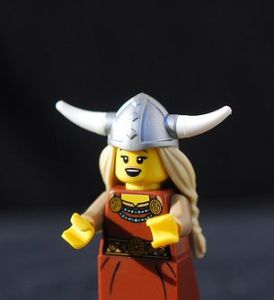
Once someone said or wrote (and of course I can’t find it now!) that they hated first person PoV and never read it because it was ‘lazy’ and ‘old-fashioned’ and ‘a newbie’s mistake to think it makes the story intimate’.
Which made me think. Not about whether that person was right—because well duh! of course they weren’t—but how we decide what voice the narrator of our stories will have.
I do get why some people hate first person POV. They don’t like the limited viewpoint they’re getting, or feel it’s an attempt to create a sort of false intimacy with the reader, with the narrator plucking at their sleeves and talking to them directly. They complain that they don’t know they can trust the narrator to be honest, given no other viewpoint to consider—something that exercises me even with the usual third person. Because bottom line: is any narrator ever completely truthful?
I’ve had novels published in both first person PoV and deep third person PoV. They are very different animals. Obviously they cover different things—the Gilded Scarab is a pure m/m romance set in a steampunk universe, the Shield series is genre science fiction with gay protagonists. But more than that, they feel and sound different because I set the characters free to find their own voices.
The Gilded Scarab is written in the first person. Rafe Lancaster tells you his story himself, with no filters or mediation. You don’t see Rafe Lancaster as others see him, just the Rafe Lancaster he sees whenever he looks into his shaving mirror. I didn’t start out in first person. Gilded Scarab was drafted as a deep third person. So deep, that about ten
thousand words in, I went back to the beginning and, as an experiment, converted it to first. And WHOA! That worked.

I had liked Rafe Lancaster in third. Put him into first person and he leapt off the monitor at me, alive and vibrant and so very much himself: sardonic, a little cynical, but still generous and compassionate. And he’d done that by the end of the first paragraph. First person, when your character is strong enough to shoulder the burden, works. Rafe works. He takes over the book from the first sentence and runs with it, and the book is brighter, louder, funnier and more touching as a result. (Cough. Even if I do say so myself).
So, fired by that experiment, I went to the almost-final draft of the genre science fiction story, Gyrfalcon, and tried it again. And whoa, dismal failure. Rafe is bright, extroverted, passionate and, well, loud. Bennet, the hero of Gyrfalcon, is reserved, clever, serious, intense and focused, logical and practical. He has to be. His job as a captain in the Shield Regiment, carrying out spying and infiltration missions behind enemy lines in a war thousands of years in the future, demands that of him. Bennet will tell you that the biggest influences on his life have been what he describes as his family’s ‘triple goddess’: duty, honour, and service.
In his way, Bennet is as a strong a character as Rafe. But it’s a different way. Where Rafe is exuberant, Bennet is quiet and watchful. Where Rafe is all about people, Bennet is better with abstract principles. Frankly, he sucked in first person. He was too reserved, held too much back. He didn’t want to reveal too much of himself, he didn’t want the emotional connection that fires Rafe’s story.
Different characters, different strokes.
The lesson for me was that it doesn’t matter that someone thinks first person PoV is lazy and childish. If your character wants to tell his story directly, it will work for him. And if he’s a little too buttoned up and reserved to expose himself to your view like that, then keep his voice in third person and allow him the little bit of distance that keeps him comfortable. This is a ‘know your characters’ thing.
Neither one PoV is better than the other. It’s what suits your characters and what suits your story. If your narrator’s voice is compelling and sounds real, if he’s a strong and engaging personality, and if you-the-author don’t intrude at all but keep invisible and silent, then whichever voice you choose will have the potential for emotional connection. First or third, use them to create a narrator that readers will come to feel they know, and hopefully, they’ll come to love.
Sign up HERE for my newsletter and I’ll send you a FREE copy of FlashWired

I hate all of these “rules” that seem to pop up all over the place about what to read and how to write. As a proud biblioholic, I think anything can work. The trick is to do it well and for the author to know their craft. I’ve read and loved both Scarab and the Shield series and you are right. The different perspectives worked for the different characters/series. Again, anything can work with the right construction / balance. It just bugs me that there seem to be these folks who think they are the nominated “gate-keepers” of what works and doesn’t. and they love to go on and on about how everyone should write stories. They aren’t all readers and they aren’t all writers. Variety is a good thing, yeah?
LikeLike
Variety is the best thing. Truly.
I don’t know why people like to pontificate about what’s right and what isn’t. Insecurity, maybe? If they can convince everyone that their own choice is right, better than anyone else’s, it’s a vindication. Maybe it’s something like that.
The main thing is to think about your choices when you’re writing, think hard about whether it fits your character, and be comfortable with the outcome. Works for me, anyway!
LikeLike
[…] Singing in your own voice Writer Anna Butler on finding the right narrator for a story, first person or third and when each works or doesn’t. […]
LikeLike